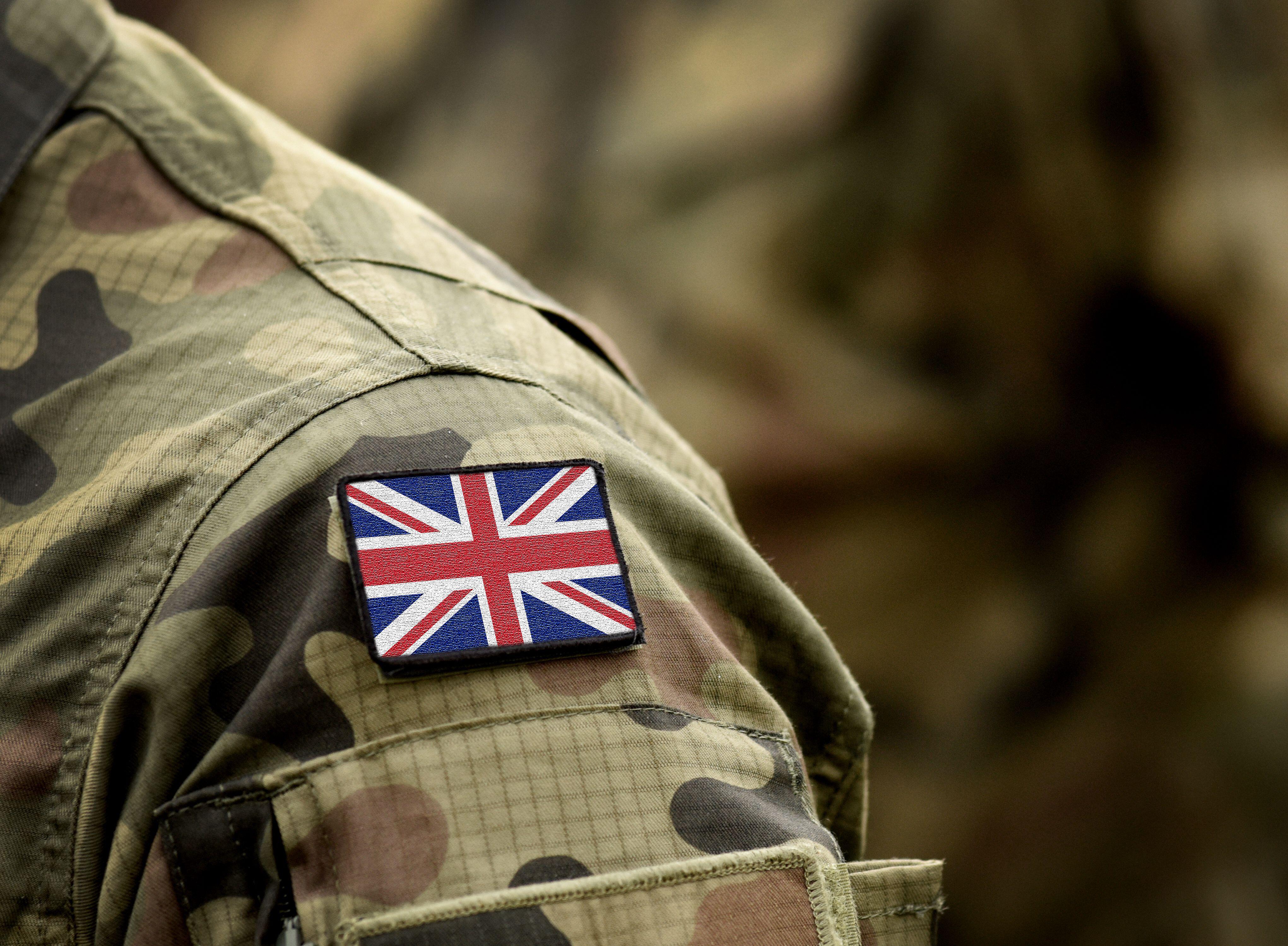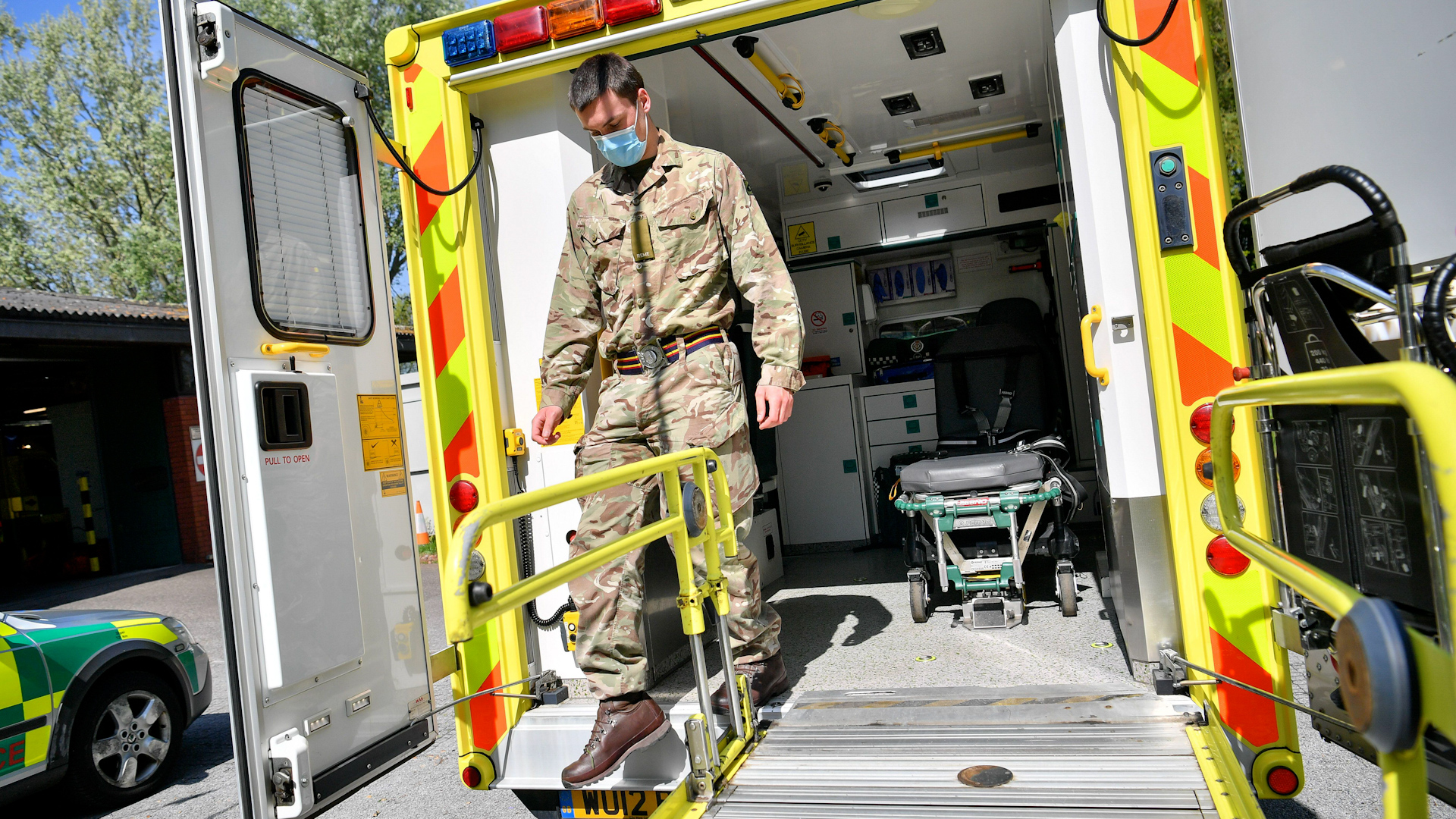
Why can't the UK's Armed Forces go on strike?

Unlike other public sector workers, it is illegal for a non-civilian member of the Armed Forces to strike, nor can they join a trade union.
All Armed Forces members are bound by the King's Regulations which make unionisation illegal.
The question of whether servicemen and women deserve a right to publicly voice their grievances like the rest of British society is open-ended.
A possible winter of strikes is on the horizon with NHS workers and firefighters considering industrial action in the coming months.
Contingency plans are being drawn up that could see members of the Armed Forces step in as ambulance drivers and hospital workers during planned strike dates.
While military personnel are expected to stand in for other frontline workers during strikes or at times of crisis, as they did during the pandemic, they themselves are forbidden from striking.
The Armed Forces is unlike any other industry or profession in the UK and, therefore, the same employment laws and regulations do not apply.
Key workers that save lives, like medical staff and firefighters are allowed to go on strike. The military and police, however, are not.
It is a matter of national security. The Armed Forces cannot lay down their arms and leave the country unprotected. The same logic applies to why police strikes are also banned.
In 2012, a petition was raised to give police officers the right to strike and to repeal the legislation forbidding the creation of police unions.

The petition gathered 16,960 signatures and the Government responded to the petition.
It said: "The Home Secretary has been clear that police officers cannot strike. That is not going to change.
"As a civil emergency service, it is vital that the service is able to discharge its duty to protect the public and keep the peace, at all times, particularly those of serious national and local disorder."
The response also pointed out that police officers are not the only public servants who face restrictions on taking industrial action.
Along with the Armed Forces and police, prison officers are also forbidden from striking.
The Government also made it clear that it has no intention of repealing the legislation banning police unions, stating that the Police Federation is the legal body responsible for representing police officers in response to the prohibition on strike action.
Similarly, the Armed Forces has the British Armed Forces Federation, formed in 2006 following discontent among some members of the military.
The issues stemmed from shortages of kit during the invasion of Iraq, as well as concerns about the proposed deployment to Afghanistan.
Recently, speaking to Forces News on how the cost of living crisis is likely to affect military personnel, Defence Select Committee chair Tobias Ellwood said: "They don't have the ability to go out on strike, so it is up to us to make the case for them to say their pay must increase."
Mr Ellwood was referring to military personnel receiving a below-inflation 3.75% pay rise, despite the current cost of living crisis.
Other complaints, that are not necessarily related to pay, are dealt with by the commanding officer or the welfare officer. That is the first step. If dissatisfied with the outcome, the issue can be escalated further to the Defence Council.
If the complaint is related to the commanding officer themselves, then that complicated the complaints procedure.
In 2013, a group of 16 soldiers held a "sit-in" protest because they were dissatisfied with the behaviour of their commanding officers.
Soldiers from 1st Battalion the Yorkshire Regiment sat on the floor in protest when ordered to stand to attention.
According to the BBC, the soldiers were protesting being "led by muppets".
Disobeying a lawful command carries a maximum sentence of 10 years imprisonment. All the 'protesters' pleaded guilty. The ringleader was dismissed and 15 of the soldiers were sentenced to detention.
Although a sit-in protest is not akin to industrial action such as a strike, the consequences faced by soldiers from the Yorkshire Regiment shows that disobedience in the military will not be tolerated.
The UK's Armed Forces is a hierarchical organisation, its structure requires the following of orders without question.
Not following orders in the military is a serious offence and, historically, standing up to the chain of command was known as mutiny.
There are several examples of military mutinies in the 20th Century.
The most famous is the Invergordon Mutiny of the Royal Navy in 1931 during which sailors in the British Atlantic Fleet took part in industrial action.
For two days, ships of the Royal Navy at Invergordon refused to follow orders, in one of the few military strikes in British history.









